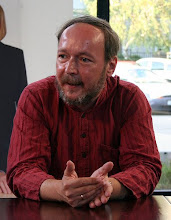 On the 25th August I visited the cemetary where Kőrösi Csoma Sándor, alias Alexander Csoma de Koros is buried. Wikipedia writes: "Sándor Kőrösi Csoma, also known as Alexander Csoma de Kőrös, born Csoma Sándor (March 27, 1784[2] - April 11, 1842), was a Hungarian philologist and orientologist, author of the first Tibetan-English dictionary and grammar book. He was born in Kőrös, Transylvania. His birth date is often credited as April 4, which is literally his baptism day. Hoping that he would be able to trace the origin of the Magyar ethnic group, he set out for the East in 1820, and after much hardship along the way, arrived in Ladakh. Under great privation there, despite being aided by the English government, he devoted himself to the study of the Tibetan language. In 1831, he settled in Calcutta, where he compiled his Tibetan Grammar and Dictionary and catalogued the Tibetan works in the library of the Asiatic Society. He died in Darjeeling just as he was setting out for fresh discoveries. He is said to have been able to read in seventeen languages. De Kőrös is widely seen as the founder of Tibetology."
On the 25th August I visited the cemetary where Kőrösi Csoma Sándor, alias Alexander Csoma de Koros is buried. Wikipedia writes: "Sándor Kőrösi Csoma, also known as Alexander Csoma de Kőrös, born Csoma Sándor (March 27, 1784[2] - April 11, 1842), was a Hungarian philologist and orientologist, author of the first Tibetan-English dictionary and grammar book. He was born in Kőrös, Transylvania. His birth date is often credited as April 4, which is literally his baptism day. Hoping that he would be able to trace the origin of the Magyar ethnic group, he set out for the East in 1820, and after much hardship along the way, arrived in Ladakh. Under great privation there, despite being aided by the English government, he devoted himself to the study of the Tibetan language. In 1831, he settled in Calcutta, where he compiled his Tibetan Grammar and Dictionary and catalogued the Tibetan works in the library of the Asiatic Society. He died in Darjeeling just as he was setting out for fresh discoveries. He is said to have been able to read in seventeen languages. De Kőrös is widely seen as the founder of Tibetology."
On February 22, 1933, Csoma was officially canonized as a bodhisattva in Tokyo. To honour the occasion, a statue of the Hungarian lexicographer seated in meditation posture was installed in the Japanese Imperial Museum.

No comments:
Post a Comment